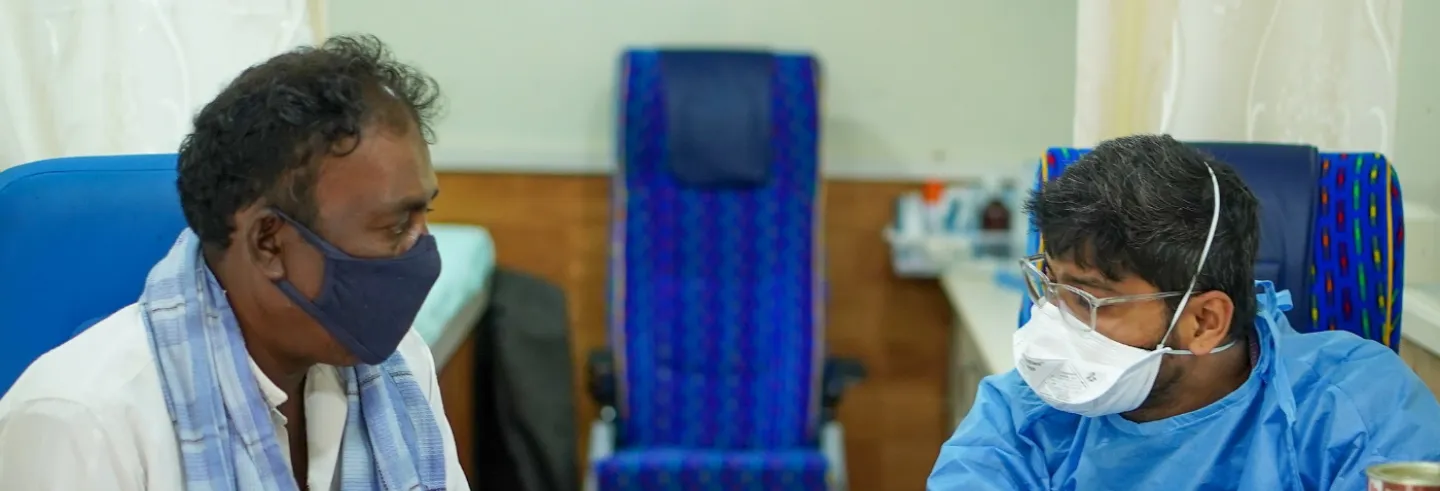Rampant overuse of antibiotics during the Covid-19 pandemic – largely because of lack of knowledge – fuelled the growth of antimicrobial resistance but also delivered two key lessons for the future: the use of antibiotics needs to be rationalised and, to achieve that, medical professionals and the broader public need to understand why.
Ironically, the pandemic-induced overuse of antibiotics makes a future bacterial or viral pandemic even more likely. The overuse of antibiotics for Covid-19 was largely caused by the lack of specific treatment for the virus. Ignorance of the cause and the rapid evolution of Covid-19 gave the medical fraternity little time to develop evidence-based strategies. Covid-19 patients with or without the evidence of co-infections or secondary infections received futile treatments, leading to higher health costs, growing antimicrobial resistance and in some situations also more deaths.
The Covid-19 pandemic magnified the growth rate of antimicrobial resistance, largely because of ignorance and fear. The overuse of antibiotics to treat Covid-19 patients hindered infection control and prevention practices in health systems. The consequences were devastating, leading to an enormous strain on health systems and financial resources.
Antimicrobial drugs, including antibiotics and antifungals, are the foundation of modern medicine and an integral part of sustainable healthcare systems. When prescribed appropriately and equitably, they save lives. However, their misuse contributes to the development of resistance, making some infections harder to treat because they no longer respond to the drugs available. The result then is patients experience prolonged illness, longer hospital stays, higher costs of treatment and increased risk of death.
The only way to limit antimicrobial resistance in hospitals and communities is to instil the idea of responsible and rational use of antimicrobials.
In India, studies showed a surge in the use of azithromycin alongside the rise of Covid-19 as most cases of fever in patients with suspected Covid-19 were prescribed azithromycin. In hospitalised patients, the use of broad spectrum agents, especially carbapenems, was the norm. The scientific approach to infection control was also hampered by the fear of the pandemic and ignorance of precautions. To compensate for the deficiencies, doctors resorted to the rampant use of antibiotic and antifungal agents. These measures were further fuelled by evolving knowledge that fungal infections were more common in severely ill patients with Covid-19.
Doctors soon learnt their lessons. It would be prudent to apply these lessons now, to prevent antimicrobial resistance from assuming alarming proportions in the future.
The only way to limit antimicrobial resistance in hospitals and communities is to instil the idea of responsible and rational use of antimicrobials. That comes through strengthening educating and creating awareness about the problem in the community and the physicians. The practice of antimicrobial stewardship needs to be strengthened at all levels of public health systems. Antimicrobial stewardship is the systematic effort to educate and persuade prescribers of antimicrobials to follow evidence-based prescribing to stem antimicrobial overuse and resulting antimicrobial resistance.
There is a need to plug gaps in the current practice and application of antimicrobial stewardship. Since most Indian government hospitals do not have infectious disease physicians, a clinician with a passion for stewardship can be trained for that role. Physicians at all levels need to be educated against prescription of antimicrobials without confirming the diagnosis of an infection.
The practice of good infection control can inspire physicians to prescribe responsibly and can be achieved in hospitals by a good infection control team.
Investment into diagnostic routines, such as quality laboratories and point-of-care diagnostics for bacteria, fungi and viral infections is critical. A lot of antimicrobials during Covid-19 were prescribed to prevent secondary infections. The practice of good infection control can inspire physicians to prescribe responsibly and can be achieved in hospitals by a good infection control team.
Guidelines that can be easily implemented and customised for low and middle-income countries can ensure the standardisation of infection control practices in the smaller hospitals that make up the bulk of facilities in a country like India. Infection control in hospitals needs to be strengthened and diagnostic stewardship improved. Facilities with the right antimicrobial stewardship team can ensure appropriate prescribing practices and increased multidrug-resistant organism monitoring.
The World Health Organization's Expert Committee on Selection and Use of Essential Medicines created the AWaRe Classification of Antibiotics in 2017 as a tool to support antibiotic stewardship efforts. The classification puts antibiotics into three groups – Access, Watch, and Reserve – to emphasise the significance of appropriate use while also accounting for the impact of various antibiotics on antimicrobial resistance.
It is a useful tool for monitoring antibiotic consumption, defining targets and monitoring the effects of stewardship policies. Doctors need to be educated about the AWaRe classification and the hazards of using broad-spectrum antimicrobials.
The increasing use of broad spectrum antimicrobials is the result of a range of factors. They include the lack of definitive diagnosis of the disease-causing pathogen, increasing antimicrobial resistance to other antibiotic classes, lack of availability of first-line penicillin antibiotics and even the marketing and promotion practices of drug manufacture. The withering away of broad spectrum antimicrobials from AWaRe’s Watch and Reserve classification groups by physicians is not a good sign.
This practice results in limited and more expensive treatment options for drug-resistant infections in Indian patients and can result in higher associated suffering and death. Making antimicrobial stewardship part of undergraduate and post-graduate medical education is also vital.
With the diminishing power of antibiotics to treat infections due growing antimicrobial resistance, the threat of a bacterial pandemic or a viral pandemic – accompanied by secondary bacterial infections resistant to the available stock of antimicrobials – remains potent. Investments in healthcare systems to provide trained personnel, well equipped laboratories and creating awareness about the threat of drug-resistant superbugs is the only way forward to pandemic-proof a crisis that is already severe.
Dr Kamini Walia is a senior scientist at Division of Epidemiology and Communicable Diseases, Indian Council of Medical Research (ICMR), New Delhi. She leads the ICMR initiative on antimicrobial resistance.
Originally published under Creative Commons by 360info™.










Inadequate information, incorrect decisions